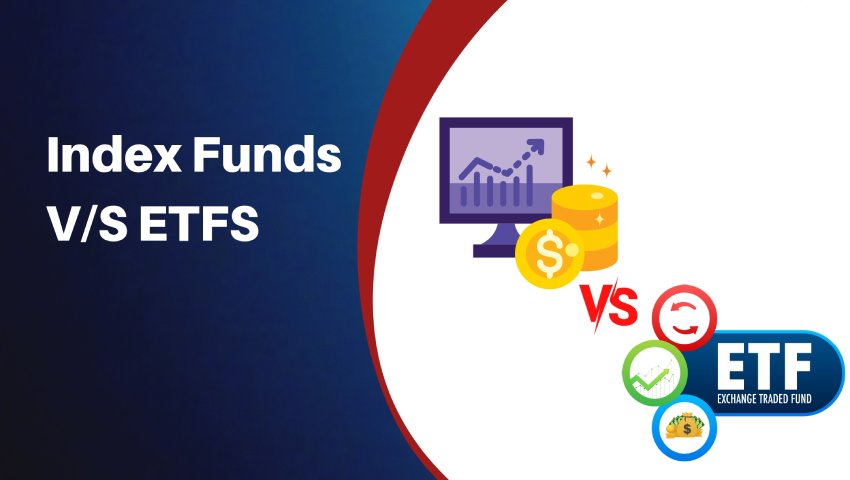
- 31/03/2025
- MyFinanceGyan
- 129 Views
- 4 Likes
- Investment, ETF, Mutual Fund
Index Funds vs. ETFs: Key Differences You Should Know
Investing can be time-consuming, and many people prefer to let professionals manage their money. That’s where passive investment options like Index Funds and ETFs (Exchange Traded Funds) come in. These funds are handled by professional managers who invest and trade on behalf of investors.
If you’re wondering what an Index Fund or an ETF is and which one is better for you, keep reading!
What Are Index Funds?
Index Funds are similar to Mutual Funds, where investments are spread across stocks, bonds, and commodities. However, they mainly follow stock market indices like NIFTY 50 or SENSEX 100.
This strategy helps reduce risk because the fund aims to match the market’s performance instead of making risky trades. Index Funds are a great option for long-term wealth creation and have gained popularity as a reliable passive investment choice.
Features of Index Funds:
- Open-ended mutual fund, meaning you can invest or withdraw anytime.
- Offers growth and dividend options based on risk preference.
- Managed by fund managers who aim to minimize losses and maximize profits.
- Charges higher management fees, making it more expensive than ETFs.
What Are ETFs?
ETFs (Exchange Traded Funds) work differently from Index Funds. They are traded daily on stock markets, just like regular stocks. ETFs are transparent, allowing investors to track exactly where their money is invested.
Some common types of ETFs include:
- Industry ETFs
- Bond ETFs
- Currency ETFs
- Commodity ETFs
- Inverse ETFs
Features of ETFs:
- Lower expense ratios but higher trading costs.
- Requires a DEMAT account to invest.
- Investors can earn and reinvest dividends.
- Affected by market trends; losses may occur in a bearish market.
- Provides real-time updates on investments.
- No growth options, unlike Index Funds.
Key Takeaways:
- ETFs trade like stocks and can offer higher profits but come with higher risk.
- Index Funds follow market indices and provide more stability.
- ETFs are riskier compared to Index Funds.
Note: This article is for educational purposes only and does not provide financial advice or product recommendations.



